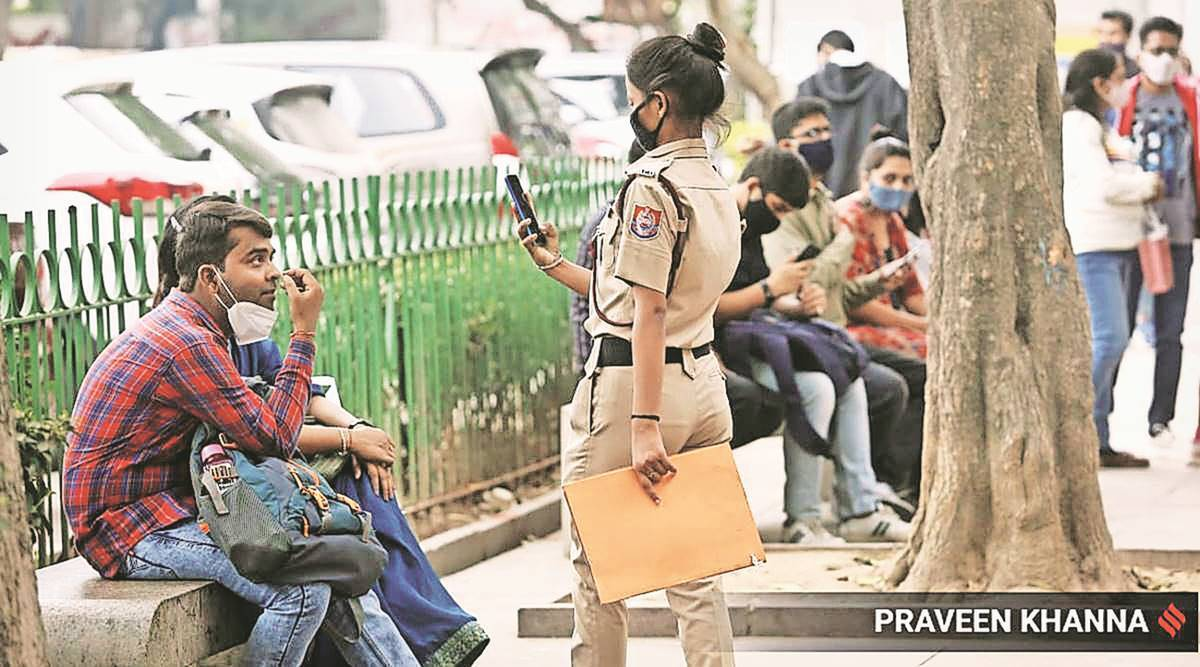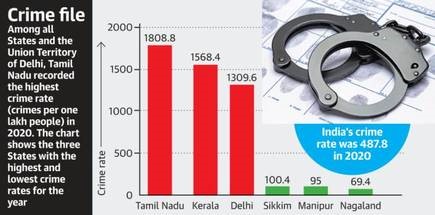NCRB Report on Crime

Figure 2: No Copyright Infringement Intended
Context:
- Overall crime numbers in the country increased by 28 per cent in 2020 over the non-pandemic year 2019, according to the latest report of the National Crime Records Bureau (NCRB).
Finding of the Report:
- It has recorded 66,01,285 cognizable crimes comprising 42,54,356 Indian Penal Code (IPC) crimes and 23,46,929 Special and Local Laws crimes.
- It shows an increase of 14,45,127 (28%) in registration of cases over 2019 (51,56,158 cases).
- Crime rate (number of cases registered per one lakh population) increased from 385.5 in 2019 to 487.8 in 2020.
- There is a decrease in registration of traditional crime by about two lakh cases.
- According to the data, two states, Gujarat and Tamil Nadu, recorded abnormal spike in IPC crimes. From 1.39 lakh cases in 2019 in Gujarat, the figures jumped to 3.81 lakh in 2020, recording an increase of 174 per cent. In Tamil Nadu, it was even starker – IPC cases increased from 1.68 lakh in 2019 to 8.91 lakh, a jump of 430 per cent.
- A total of 8,272 cases were registered for committing crime against Scheduled Tribes – an increase of 9.3 per cent over 2019 (7,570 cases).
- The year also saw a 78.1 per cent increase in Environment Related Offences – from 34,676 cases in 2019 to 61,767 cases in 2020.
- A total of 50,291 cases were registered for committing crime against Scheduled Castes – an increase of 9.4 per cent over 2019 (45,961 cases).
About NCRB:
- The National Crime Records Bureau, abbreviated to NCRB, is an Indian government agency responsible for collecting and analysing crime data as defined by the Indian Penal Code (IPC) and Special and Local Laws (SLL)
- NCRB is headquartered in New Delhi and is part of the Ministry of Home Affairs (MHA), Government of India.
- NCRB was set-up in 1986 to function as a repository of information on crime and criminals to assist the investigators in linking crime to the perpetrators.
Objectives of NCRB:
- Create and maintain secure sharable National Databases on crimes and criminals for law enforcement agencies and promote their use for public service delivery.
- Collect and process crime statistics at the national level and clearing house of information on crime and criminals both at National and International levels.
- Lead and coordinate the development of IT applications and create an enabling IT environment for Police organizations.
- National repository of fingerprints of all criminals.
- To evaluate, modernize and promote automation in State Crime Records Bureaux and State Finger Print Bureaux.
- Training and capacity building in Police Forces in Information Technology and Finger Print Science.




1.png)
